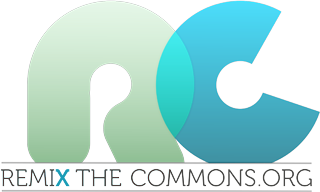
As Alain Ambrosi wrote in 2012, “Commons is on everyone’s lips“1. In order to make this notion known and to avoid its dilution in sometimes too vague speeches, the collective Remix the Commons endeavors to decipher the practices and to sketch out the semantic and conceptual field of the movement of the commons from the collection and analysis of the documents it produces. The development of this vocabulary, which uses the tools of the semantic web, makes it possible to link the initiatives of documentation and promotion of the commons without erasing what makes their identities unique. By doing that, the movement of the commons has a space for strategic collaboration.

It is in 2010 that Remix the Commons initiates a process of documentation of the commons. Initially, the collective has a simple web site to identify and report content, mostly video, accessible online. At the same time, an initial series of video interviews was conducted at an international meeting in Berlin (2010). Others will follow the rhythm of World Social Forums or local initiatives in France, Senegal, Quebec first, and then in many countries on different continents. It quickly becomes necessary to allow each person to search by using key words in this documentation.
From key words to the commons vocabulary
When cataloging media objects on the Remix the Commons wiki (more than 500 media objects now), we describe the content of each production according to four axes which helps to position it in the field of the commons: object or resource to be commonified, stakes, associated actions and expected results. To date, more than 400 “key concepts” have been identified from the corpus gathered on the site. After that, ech concept is a card that uses the information on the Remix the Commons wiki, but also data from other sources accessible by using linking techniques by wikis and the semantic web. From each record, the user accesses information from the main documentary collections associated with the commons (P2P Foundation, Transformap, Digital Library of the Commons) and the large reference databases DBpedia, Wikidata, VIAF And WorldCat. Each concept is accompanied by definitions in several languages, resources published around the world that illustrate the point or refer to practices.
This set of key concepts provides a vivid and moving description of the world from the point of view of the commons. This collection is freely accessible, usable by all and open to contribution. Although this work is still at an experimental stage, it opens up interesting perspectives in terms of research, the production and the dissemination of knowledge about the commons. Holes, gaps and nuances between sources of information, between languages and cultures can be identified, documented and discussed among the actors involved in the field of the commons.
The vocabulary of the commons highlighted can support the emerging practices and contribute to the enrichment of the contents in Wikipedia and Wikidata, for example. The associations and collectives that contribute to the documentation of the commons, have there a resource that allows them to collaborate on the production of informational commons on the commons.
